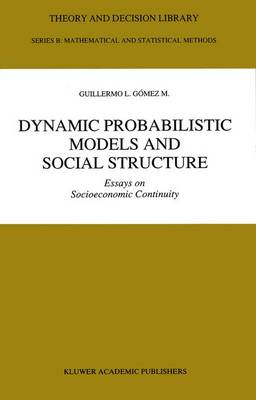This monograph deals with the application of stochastic analysis and control techniques to the study of socioeconomic problems arising in processes of development and growth. Economic issues are formulated to be amenable to mathematical scrutiny without losing sight of their essential context. This self-contained work consists of three parts. Part one is a detailed examination of basic themes of available theories of political economy and develops a body of theoretical tools appropriate to the investigation of stochastic accumulation of capital within the framework of social reproduction. Part two points to the elaboration of a novel approach using probabilistic and variational methods. Key concepts such as expansion of capacity, development of productive forces, generation of economic surplus and effective demand are incorporated in stochastic models where learning, renewal of system potentials and conflicting social arrangements are at the heart of capital accumulation. Part three consists of four succinct surveys which carefully introduce the basic machinery from the theory of systems, (deterministic) optimal control, stochastic analysis and control of random systems.
The last survey identifies distinguishing features of a labour-surplus economy of the peripheral type within the world capitalist system. The application of the semimartingale methodology and analogies from probablistic mechanics shifts informational structures to the forefront and points to fundamental links between microscopic and macroscopic aspects of system interactions as well as time scaling and observation of socioeconomic phenomena.
- ISBN10 0792317130
- ISBN13 9780792317135
- Publish Date 31 May 1992
- Publish Status Out of Print
- Out of Print 2 June 2021
- Publish Country US
- Publisher Springer
- Imprint Kluwer Academic Publishers
- Format Hardcover
- Pages 460
- Language English
